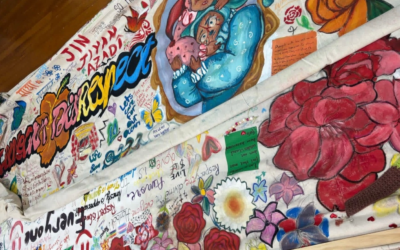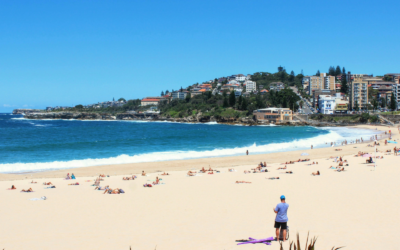Pursuing a master’s degree is more than ticking off another qualification – it’s a personal and professional turning point. For those considering postgraduate study, especially at Western Sydney University, understanding the student experience can make all the difference.
Dat Nguyen (Master of Data Science) and Khoa Dang (Master of Social Work – Qualifying) share their reflections on studying at Western – from shifting expectations and academic pressures to support systems and everyday routines. Their stories will offer practical insight for anyone thinking about taking the next step in their education journey.
Why Western?
Choosing a university for postgraduate study is never a simple decision. For Nguyen, who completed an undergraduate degree in Vietnam, the motivation to study a Master of Data Science came from a desire to explore new environments and push his learning further. Western was his top choice for affordability and scholarship options.
‘Western had one of the best financial packages among Australian institutions and support options for international students’, he said.
In contrast, Dang had already completed an undergraduate program in Sydney. Dang appreciated Western’s recognition of his prior study, allowing him to skip the Postgraduate Bridging Program (Social Work) and start the Master of Social Work (Qualifying).
“I appreciated that Western recognised my previous study and allowed me to enter directly’, Dang said.
Despite different journeys, both students were pleasantly surprised by the atmosphere on campus. From classmates to staff, the sense of friendliness helped ease their transition. As a student of any age or degree, a sense of community and belonging is of utmost importance.
Academic life: Learning Beyond Exam
Both Nguyen and Dang realised postgraduate study is not just about grades – it’s about learning how to think, work, and grow independently.
For Nguyen, the biggest shift came from expectations of the student’s initiative.
‘Some teachers will assume you already know the basics. So, it’s really your job to make sure you’re up to speed – things like citation and academic integrity aren’t always explained step by step’.
One final exam surprised him with its oral interview format:
‘No materials allowed. And the questions included contents from the very first week till the very end. So, you couldn’t just memorise – you actually had to understand’.
Meanwhile, Dang pointed out how a lack of academic guidance can leave students feeling lost:
‘Some assignments weigh 40% but only come with four lines of explanation. We need clearer feedback – what we did well, what we didn’t and how we can improve. Tutors should also show how the rubric is actually used’.
These moments, while frustrating, highlight an essential truth about postgraduate study: It’s not just harder – it requires independent and self-directed learning. Success comes down to how well you manage your own learning throughout the long semester.
As for whether doing a master’s is worth it, Nguyen believes the answer depends on your goals – but the experience never goes to waste.
‘It really depends on your needs. But even if you’re still unsure, you won’t lose anything by learning more’.
Support, Belonging, and Balancing Work-Life as a Postgraduate student
One thing both Nguyen and Dang agree on: doing a master’s is about managing yourself, your learning, and your wellbeing.
Nguyen shared that Western’s academic culture prioritises independence; support is always available. He noted that the University individually checked in on students during the semester.
‘Near the end of term, the uni staff even called to ask how I was going, what struggles I encountered, and suggested a few clubs and communities to join. That really surprised me – in a good way’.
Nguyen found facilities highly practical for his studies. Free printing, access to academic resources beyond Google, and responsive IT support helped him manage coursework.
On a different side, while Dang appreciated the library and University infrastructure, he acknowledged there was a gap in meaningful student-staff relationships.
‘Western’s environment is inclusive, and that’s how I think education should always be. However, many tutors here don’t really know their students. I wish there were more relationships – the kind where teachers inspire you, or talk beyond academic advice’.
Both students emphasised the importance of mental and emotional support – not just through systems, but also through personal time.
While Nguyen recharges with sports, Dang looks forward to networking and placement. These are both crucial for master students to pursue their studies besides many other commitments.
Through Nguyen and Dang’s reflections, it’s clear that doing a master’s degree is not just about getting another degree. It’s about navigating independence, seeking clarity, building community, and adapting to a system that values critical thinking and self-direction.
Their stories also show that while Western offers real opportunities, there’s always room to improve – through academic feedback, building deeper student-staff connections, and in helping students thrive both in the classroom and out.
For those considering postgraduate studies, Western might be the place to begin that journey. Click here for more information on the official website!



